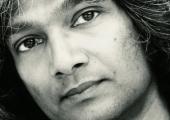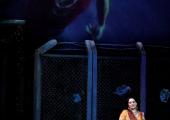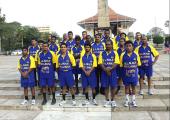South Asian Literature 1: Romesh Gunesekera Q&A

The prize-winning Sri Lankan author on the rude health of subcontinent literature
The inaugural South Asian Literature Festival takes place in London over 10 days. It has drawn authors such as Amit Chaudhuri, Fatima Bhutto, Kenan Malik and Mohamed Hanif, as well as publishers, translators and artists (performance and graphic) connected with the region. Over and above events relating to tribal art, oral culture, travel writing, cultural offence and the literary divide (if such there be) between India and Pakistan, the festival will also feature the announcement of the shortlist for the inaugural DSC Prize for South Asian Literature, a $50,000 award recognising "writers of any ethnicity writing about South Asia and its diasporas", the winner of which will be declared at the Jaipur Literature Festival in January. Theartsdesk speaks to prize-winning Sri Lankan author Romesh Gunesekera, about the festival’s ambitions and the rude health of subcontinent literature.




